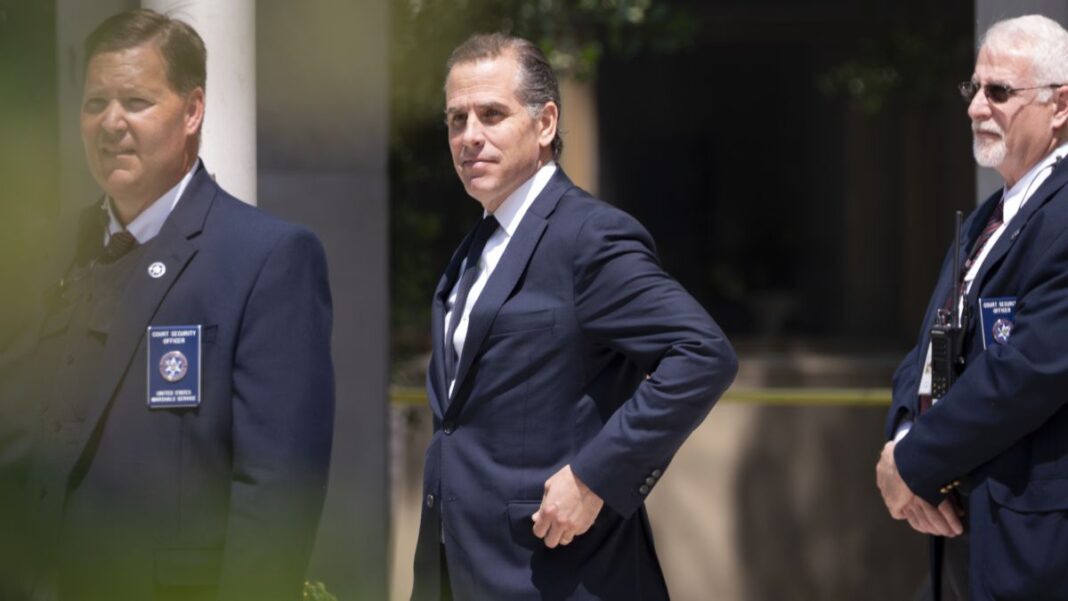WILMINGTON, Del.—President Joe Biden’s son Hunter Biden on July 26 appeared in Wilmington for a plea hearing, but the hearing ended with no outcome due to disagreements between attorneys and the presiding judge.
Mr. Hunter Biden appeared at the J. Caleb Boggs Federal Building to have a judge hear a plea agreement involving three counts: two misdemeanor charges for willful failure to file tax and a felony firearm charge that was expected to be diverted through a pretrial agreement that became a flashpoint of controversy in a confused hearing.
Under the proposed pretrial diversion agreement—a preliminary agreement by Mr. Biden’s attorneys and prosecutor U.S. Attorney for the District of Delaware David Weiss—Mr. Biden agreed to plead guilty to the tax charges in exchange for immunity from other potential tax, gun, and drug crimes that he may have committed during the period from 2014 to 2019.
However, Judge Maryellen Noreika, an appointee of President Donald Trump, disappointed the expectations of both sides when she refused to accept or reject the deal immediately, placing judicial confirmation of the agreement on hold.
Here are six takeaways from the hearing.
Judge Imposes Pretrial Release Conditions
After opening the hearing, Judge Noreika said that Mr. Biden would be eligible for pretrial release to avoid going to jail ahead of his trial and sentencing only if he cooperated with a number of conditions.
First, the judge told Mr. Biden he would need to seek employment, a common judicial order for those facing criminal accusations.
Mr. Biden will also be required to remain under supervision by a probation officer, who may request a drug test from the first son at any time. Judge Noreika added that this included marijuana which, despite some state-level decriminalizations, remains illegal at the federal level.
Failure of a drug test would result in Mr. Biden’s arrest pending his court date.
Mr. Biden will also be required to inform the probation office of any international travel plans.
By Joseph Lord









